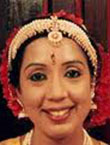Sivananda Bahamas Blog
Expand Your Horizons …
Our Blog
Feeling Disconnected? Yoga Psychology Can Help.
Yoga is alive today and thriving all over the world, says Dr. Uma Krishnamurthy, a child psychiatrist who is now a practitioner and teacher of yoga psychology as well as an annual presenter at the ashram. “The word ‘yoga’ comes from the Sanskrit ‘yuge’ which means to be connected,” she says. “It is more and more important for us to feel that connection, the source of peace and joy bubbling within us.”
Yogic psychology accepts the existence of consciousness, simply described as that from which creation arises and into which creation dissolves. “In each one of us, the masters say, we have this divine consciousness,” says Dr. Uma.
Her definition of consciousness is like the mantra “sat chit ananada,” which translates sat: awareness, chit: intelligence, ananda: blissfulness. “Yogis have not mentioned sorrow or suffering in their definition of consciousness,” she points out. “In the Bhagavad Gita, Lord Krishna says suffering is unnecessary."
"And yet we suffer.”
And while modern psychology accepts suffering, and in some cases even prolongs it, yoga psychology also holds that suffering is unnecessary, she says.
So what creates this experience of suffering? All of us have a habit of worry, anxiety, or depression that we want to get rid of, says Dr. Uma, but just wanting isn’t doing it for us. “We may read inspiring books and attend lectures, but there is some resistance within us.”
Sri Aurobindo, the guru and philosopher, described several components in each of us, Dr. Uma explains, so even though your intellect is giving guidance, your reason says you cannot change. “Transformation is difficult, maybe even extremely difficult,” she says. “But it’s possible.”
Aurobindo says you must take permission from your intellect, soul, mind, and body when you want to make any change. “Every part of you must agree; this should be a guiding principle in us,” she says. “The direction should come from the higher part of yourself so it’s important to get into a higher consciousness to guide us and then listen to this direction.”
Dr. Uma points out that sometimes in a decision, we have the problem of one part battling with another; we ask people for help and direction but the real answer is within us. Our job is to awaken that higher intelligence — and yoga is all about how to connect with it.
She cites the work of Abraham Maslow, the American psychologist best known for creating a “hierarchy of needs.” He says one reason we suffer from neurosis is because we are halfhearted in our actions; we don't do anything in an integrated way. “When you’re talking to people, only part of your mind is listening,” Dr. Uma says. Practices like mindfulness and meditation are ways to change that.
“One person in my entire life who I felt was integrated was my grandfather,” she says. “He was a man of few words; he spoke about 10 sentences throughout the day. He was my main companion when I was at medical school; his presence was very attractive though he didn’t speak much. Yet he was so deep, so meaningful.”
Yoga is all about integration, she says. “When I am sitting here with you, I should be wholly with you, fully available for this moment. Aurobindo says to learn to see eternity in this very moment; that is yoga.”
Dr. Uma described her encounters with a patient who had stopped speaking for many years, and no one knew why. She checked him and found nothing wrong. Then she asked him to write about it. He wrote that so much speech had hurt him so he just gave up speaking. “It’s easy to hurt people through speech,” she says. “My grandfather acted in everything with full attention, never did anything without deliberately putting attention into that action.”
The transformation that we seek is all about perception, she says. “Labeling is the worst thing we can do. In today’s medicine, once we label our disease, we get so caught up in the label that it’s hard to come out of the box. We should always say, this is a problem to be solved. There is no sinner at all, you are divine.”
In the journey of life there will be struggles but fundamentally we suffer mostly from self-criticism, she says. “Acceptance is one way of resolving conflict. We need loving perception not just for others, we need to love ourselves, too. Unless I love myself, I cannot love you or respect you.”
At this time of global connection on our planet, it is ultimately our inner connections that matter most, and yoga offers timeless wisdom and accessible practices to heal our existential pain.

Uma Krishnamurthy, MD, has been exposed to spiritual teachers and yoga philosophy from early childhood. She is a psychiatrist by training and has many years of experience in the fields of healing, yoga psychology, and transformation of emotions that are currently her main areas of interest and research. She is the author of an upcoming book on Yoga Psychology. She regularly conducts workshops at the Yoga Biomedical Trust in London, at Sivananda Yoga and Vedanta Centers worldwide, and at Krotona Theosophical Society, Ojai, California. Dr. Krishnamurthy has also received formal training in classical Indian dance. Her research on the similarities of yoga and classical Indian dance has received much acclaim.








